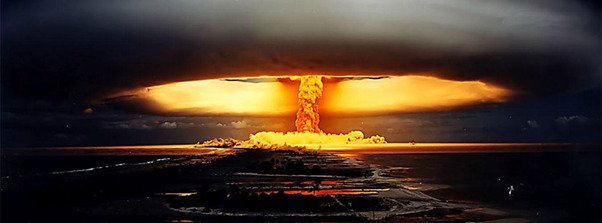El Fasher Encircled: Satellite Images Reveal 'Kill Box' as Humanitarian Crisis Deepens
- Obyektiv Media
- Aug 31, 2025
- 4 min read

El Fasher, Sudan – Satellite images and research from Yale University's Humanitarian Research Lab (HRL) reveal an extensive earthen wall, known as a berm, is being constructed around the besieged city of El Fasher in Sudan, trapping an estimated 300,000 residents and deepening a catastrophic humanitarian crisis. The paramilitary Rapid Support Forces (RSF), which has been battling Sudan's army since April 2023, is accused of building the barrier to create a "literal kill box" around the city, which is the last major army stronghold in Darfur.
The HRL has identified more than 31km (19 miles) of berms constructed since May in territory occupied by the RSF. According to the HRL, the physical boundary is designed to deepen siege conditions and control who and what can enter or leave the city. The construction is ongoing.
The timeline for the berms' construction, as traced by the HRL on a map of El Fasher, includes:
9km constructed between 14 and 24 July 2025.
6km constructed between 3 and 19 August 2025.
7km constructed between 5 May and 12 July 2025.
9km with construction ongoing between 13-27 August 2025.
One segment of the berm constructed through Alsen village appears to show that the majority of the settlement was destroyed between 20 May and 6 July. The HRL also identified damage from RSF bombardments to a crucial water treatment facility near the airport, although it is believed to still be operational.
A "Devastating Tragedy" for Children
After 500 days of siege, El Fasher has become an epicentre of child suffering, with malnutrition, disease, and violence claiming young lives daily, according to the UN Children's Fund (UNICEF). Around 260,000 civilians, including 130,000 children, remain trapped in the area's main camp for internally displaced people, enduring desperate conditions without aid for over 16 months.
Reports this week indicate a mass-casualty incident where seven children were reportedly killed in an attack on Abu Shouk camp for internally displaced people on the outskirts of El Fasher. Dr Mohamed Faisal Hassan from the Sudan Doctors Network told the BBC that a shelling incident in a civilian area in the city centre killed almost 24 civilians and injured 55 people, including five women. He described attacks on the central market and a residential area as "deliberate" and "heinous," noting that a major hospital in El Fasher was targeted three days prior, resulting in a "massive massacre" of patients and medical staff.
Since the start of the siege in May 2024, more than 1,100 grave violations have been verified in El Fasher alone, including the killing and maiming of over 1,000 children. UNICEF also reported that at least 23 children have been subjected to rape, gang rape, or sexual abuse, while others have been abducted, recruited, or used by armed groups. Health and education facilities have also come under sustained attack, with 35 hospitals and six schools struck.
Blocked Aid and Growing Desperation
The RSF has cut off all supply lines to El Fasher. Humanitarian organisations have been unable to access the city for months, leaving remaining civilians enduring constant bombardment, food scarcity, and difficulties in accessing medical care. "We are witnessing a devastating tragedy – children in El Fasher are starving while UNICEF’s lifesaving nutrition services are being blocked," said Catherine Russell, UNICEF Executive Director.
The UN aid coordination office (OCHA) warned that the already dire situation continues to worsen. Blocking humanitarian access is a "grave violation of children’s rights," Ms. Russell stated. The suspension of medical services due to depleted supplies has left an estimated 6,000 children suffering from Severe Acute Malnutrition (SAM) without treatment, facing an "extremely high risk of death". News reports indicate at least 63 people, mostly women and children, died of malnutrition in just a single week.
Adding to the crisis, the siege is colliding with Sudan’s worst cholera outbreak in decades, with more than 2,400 deaths reported since July 2024. Children weakened by hunger in overcrowded camps are now especially vulnerable to cholera and other deadly waterborne diseases.
Civilians attempting to flee are also at grave risk. "Some civilians are trying to escape the city but sadly they are being targeted and killed by the RSF forces," Dr Hassan said. Halima Hashim, a 37-year-old schoolteacher and mother of four, told AFP that staying behind was like a "slow death," but "leaving is dangerous".
Strategic Implications and Calls for Protection
El Fasher's fall would mean the RSF would gain full control of the western region of Darfur. Observers warn that such a scenario could potentially lead to a partitioning of Sudan, as the warring forces have each appointed their own governments. The UN Security Council recently rejected the RSF's declaration of a rival administration, warning it threatens the country's unity.
The RSF has previously denied charges of targeting civilians and carrying out ethnic cleansing. However, the Sudan Doctors Network and UNICEF reports contradict these denials.
Adeeb Abdel Rahman Youssef, a former governor of central Darfur State who now works with the NGO People to People, appealed to the UN Security Council to protect the civilians of El Fasher. "The civilian population in El Fasher is paying the heaviest price. There is no one to protect them," he told the BBC World Service. UNICEF continues to call for unimpeded humanitarian access for the delivery of therapeutic food, medicines, clean water, and other essentials, reiterating that children "must be protected at all times".



Comments